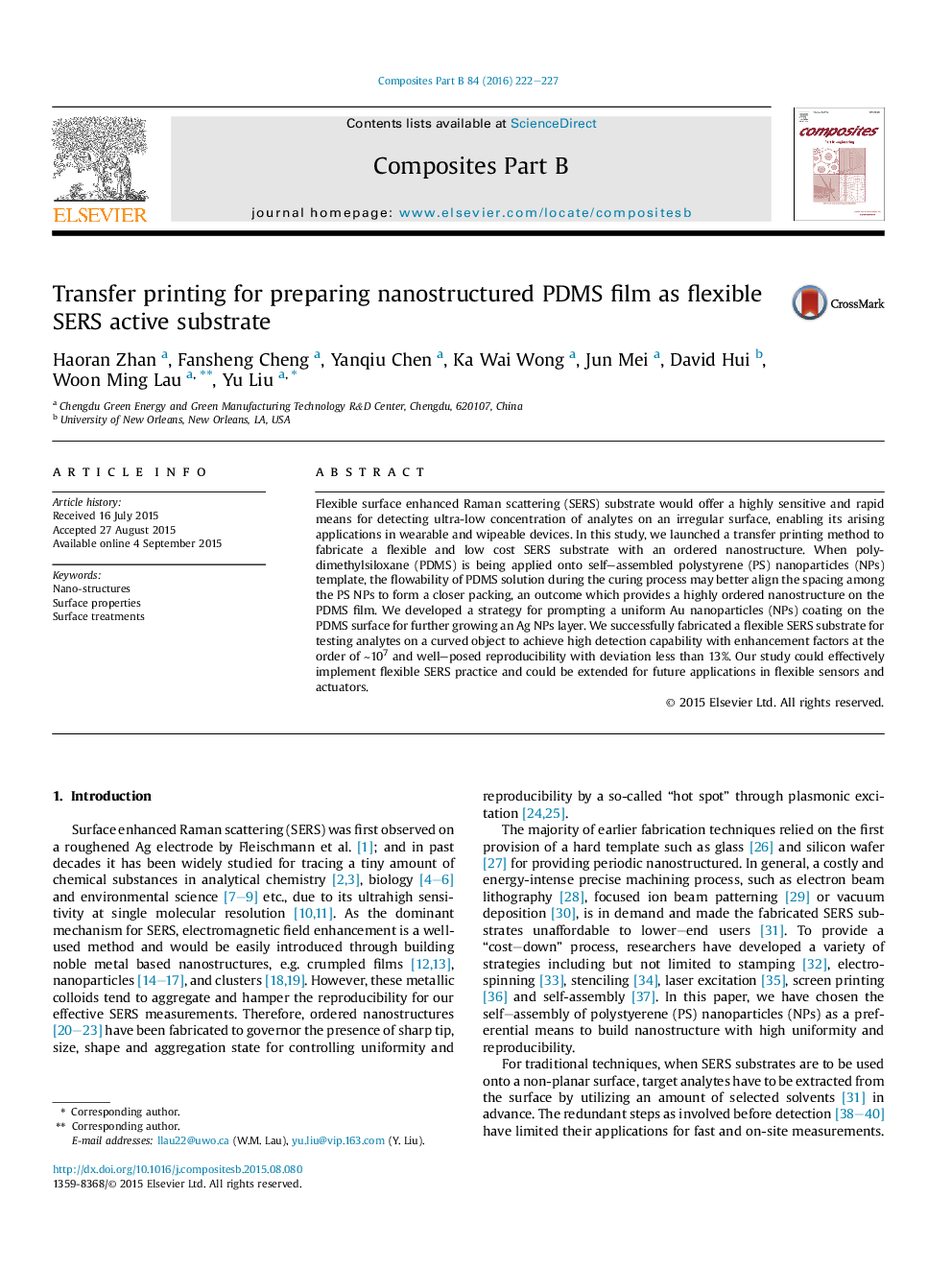| Article ID | Journal | Published Year | Pages | File Type |
|---|---|---|---|---|
| 7213042 | Composites Part B: Engineering | 2016 | 6 Pages |
Abstract
Flexible surface enhanced Raman scattering (SERS) substrate would offer a highly sensitive and rapid means for detecting ultra-low concentration of analytes on an irregular surface, enabling its arising applications in wearable and wipeable devices. In this study, we launched a transfer printing method to fabricate a flexible and low cost SERS substrate with an ordered nanostructure. When polydimethylsiloxane (PDMS) is being applied onto self-assembled polystyrene (PS) nanoparticles (NPs) template, the flowability of PDMS solution during the curing process may better align the spacing among the PS NPs to form a closer packing, an outcome which provides a highly ordered nanostructure on the PDMS film. We developed a strategy for prompting a uniform Au nanoparticles (NPs) coating on the PDMS surface for further growing an Ag NPs layer. We successfully fabricated a flexible SERS substrate for testing analytes on a curved object to achieve high detection capability with enhancement factors at the order of â¼107 and well-posed reproducibility with deviation less than 13%. Our study could effectively implement flexible SERS practice and could be extended for future applications in flexible sensors and actuators.
Related Topics
Physical Sciences and Engineering
Engineering
Engineering (General)
Authors
Haoran Zhan, Fansheng Cheng, Yanqiu Chen, Ka Wai Wong, Jun Mei, David Hui, Woon Ming Lau, Yu Liu,
